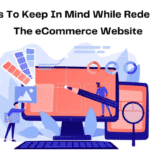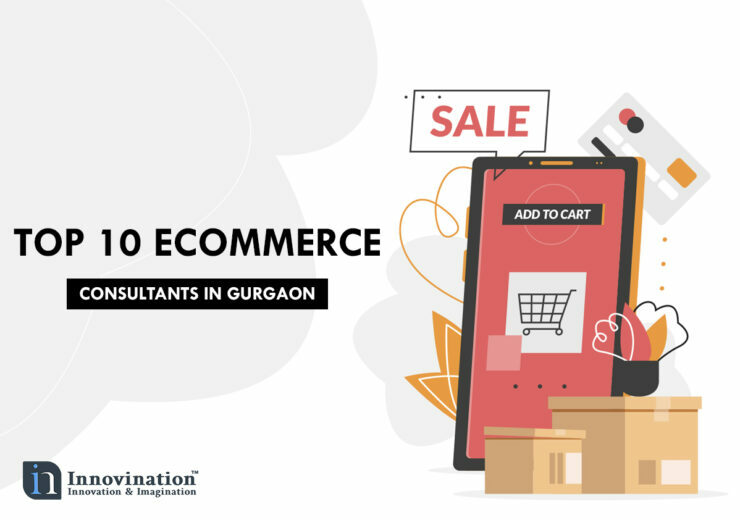6 Best Ecommerce Platforms for Small Businesses
Updated at: March 26, 2024

Nowadays, the eCommerce industry is continuing to grow and evolve. The main reason is that modern consumers prefer to shop online because of the convenience and simplicity of the process.
You just have to find a store online, make a purchase and the goods will be delivered right to your doorstep.
Furthermore, the number of online shoppers continues to grow. That’s precisely why so many entrepreneurs decide to start their own eCommerce businesses. Although it’s a very competitive and crowded market, opening an online shop can still be a lucrative endeavor.
The fact of the matter is that online consumers are more concerned about the overall service, support, and experience than the quantity or quality of your products.
If you manage to meet consumer needs and provide them with something unique, it won’t matter that your shop is a small business that hasn’t achieved fame and glory in the market yet.
Now, the key to managing that is to find an ideal eCommerce platform that will help you reach your goals and objectives.
As you may already know, there are a lot of different platforms. They all have their unique advantages and disadvantages. Choosing the right platform comes down to your needs and the needs of your business.
With that in mind, here are a few of the best eCommerce platforms for small businesses.
1. Platforms with the Best Pricing Plans
As a small business owner with a foothold in the eCommerce industry, one of your primary goals is to manage your budget effectively.

[Source: Pixabay]
Everyone knows that small businesses don’t have a lot of capital to work with. Then again, there’s a cost to using an eCommerce platform. So what to do?
Your best option is to look for a platform that offers ideal pricing plans. Every eCommerce store needs a way to scale accordingly so that it can grow and develop further. You can do that if you drain your resources in the first couple of months while you struggle to find customers.
Once you choose a platform you can always change it later on as your business grows. That’s why you should be focused on what works best for your online shop now.
For example, the eCommerce platform that’s most financially friendly towards new online shops is Square Online. The main reason is that this platform allows you to start selling your products for free. Here’s what their free plan looks like.
Unlimited products.
Sell on Instagram and Facebook.
Pickup, delivery, and shipping.
Self-serve ordering.
SEO tools.
Sync with Square POS.
The only catch is that this platform charges you 2.9% + 30¢ per transaction, which is their way of providing you with pricing flexibility while earning something in return.
2. Platforms with the Best Flexibility
As mentioned above, providing your audience with something unique is the surefire way to win them over and outrun your competitors. However, creating something unique is difficult if you’re limited by the platform’s capabilities.
Many eCommerce platforms have a specific set of templates, themes, and features for you to choose from and that’s it. There may be many options but the limitations are still there. Considering just how many online stores there are in the world, chances are that someone, somewhere, is using the same configuration as you are.
In order to overcome such challenges, you should look for an eCommerce platform with the best flexibility. A platform that will allow your small business to gain a necessary edge over other competitors. A good example of such a platform is Magento.
Magento is an open-source eCommerce platform, which means it allows you to create custom features and solutions, provided you have the necessary know-how. If not, you can hire a company that specializes in web development from Chicago, for instance, that can help you create something unique for your online store.
Because Magento is written in PHP framework, creating custom features and solutions is easier and cheaper. Your store can easily obtain something no other store has, which is a valuable advantage for every small business.

[Source: Pixabay]
3. Platforms with the Best Features
The eCommerce market is very competitive. Oftentimes, you need a platform that’s equipped with the right tools and the right features that will help you run your store more seamlessly and at the same time provide your customers with an exceptional experience, service, and support.
This will help you in keeping your customer engaged while avoiding any issues that may cause them to go over to your competitors. If you’re relatively new to the eCommerce world, managing all that can be quite a challenge.
This is especially true for small businesses with limited capital. That’s why you should choose an eCommerce platform with the best features.
Shopify’s eCommerce platform certainly meets those criteria. Their custom features can ensure that any online shop under their wing performs exceptionally well. Here’s a list of feature categories that Shopify offers to its users.
Omnichannel selling.
Smart inventory management.
Staff management.
Checkout features.
Product features.
Customer features.
Hardware.
Reporting and analytics.
Marketing.
Payment features.
Chances are that Shopify has any feature you might imagine. They are competitively priced, but at least you know what you’re paying for.
4. Platforms with the Best Exposure
More often than not, online stores are forced to switch markets, either because of fierce competition or because of growth opportunities. In any event, being able to reach out to a broader audience is essential.
However, that’s easier said than done, unfortunately. Not all members of your target audience are in one place. If you have limited resources, you can only stretch them so far so that you can reach as many potential customers as you can.
That’s why you should consider an eCommerce platform that can help you out when it comes to reaching different markets and broader audiences. The BigCommerce platform is an ideal solution for such purposes.
When it comes to multi-channel retailing, BigCommerce is at the top of the game. This platform can help you reach any audience on any channel you desire. Here are a few examples.
Social media retail on Facebook, Instagram, Pinterest, and so on.
Supports “Buy” buttons on social media posts, blogs, emails, etc.
Amazon and eBay integration.
Having your products visible, accessible, and available across multiple channels is vital for business growth. That way, you can easily ensure a larger market share or engage in market penetration strategies that will allow your online shop to gain more exposure and ultimately grow.
5. Platforms with the Best Marketing
Simply having an online store isn’t enough to help you start generating income. You have to promote your business, as well as your products if you want to get anywhere. Of course, a marketing budget is a separate entity for the rest of your eCommerce efforts.
You need the right plan and the right marketing strategy to spread the word about your business effectively. Fortunately, you can kill two birds with one stone by simply choosing an eCommerce platform with the best marketing features.
This is where WooCommerce comes into play. This isn’t really an eCommerce platform per se. Instead, it’s a free plug-in that turns your WordPress (WP) website into an eCommerce store.
Considering how WP is one of the best CRMs (Content Management Systems) in the world, having a WP website/online store can do wonders for your marketing efforts, especially when it comes to SEO (Search Engine Optimization).
When it comes to SEO, WP has all the right tools, plug-ins, and features you need to properly optimize and promote your website. That means better visibility and rankings on search engines, such as Google. This also means more organic traffic and more qualified leads. WooCommerce also helps you promote your store on social media and email channels.
6. Best Platforms for Dropshipping
Considering the fact that opening an online store also means having warehouses for storing inventory, supply chain, and logistics for transportation, it can be a monumental undertaking for small businesses. Fortunately, you can still open an online store without investing in all of that.
The simple answer is dropshipping. Dropshipping is a type of order fulfillment where an online store doesn’t keep the goods in stock. Instead, the store purchases products from a third-party supplier who also ships the goods directly to customers.
In other words, you sell the goods, others worry about logistics and storage. Your initial costs may be higher in this case, but your margins are better because you have control over how many products you sell at any time.
If you’re considering this option, you might as well choose the best eCommerce platform for dropshipping.
In that case, you should consider Wix eCommerce because it’s the best choice for small businesses. The main reason is that Wix provides its drop shipping customers with the so-called “Modalyst” app. This app allows you to find products in different geographical locations that some other apps aren’t able to.
Closing Words
Every eCommerce platform available to you has something unique to offer. As a small business owner, it’s up to you to decide the most reliable and most affordable option.
Other than that, the platform you choose should be able to help you not just run but also improve and further develop your eCommerce business.






